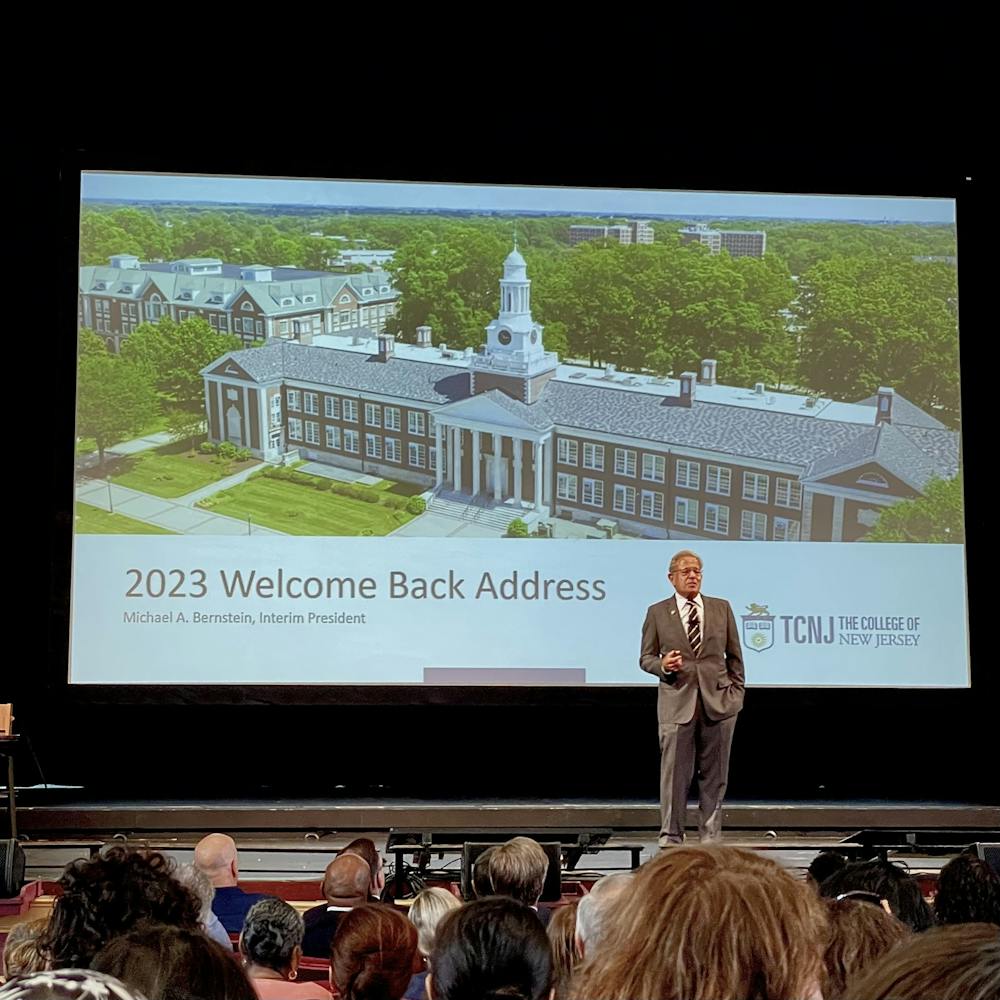By Matthew Kaufman and Ally Uhlendorf
Managing Editor and News Editor
Interim President Michael Bernstein suggested that differential tuition and housing pricing be implemented at the College at his first address to faculty members last week.
Speaking to a full house in Kendall Hall, Bernstein emphasized that his proposal is just an “idea” that can be discussed in the coming months with campus stakeholders. There are not currently active plans to implement this system at the College.
“We will generate more revenue that way, and we will have more resources for scholarships to students who want and can join us,” Bernstein told the audience.
“To put it crudely,” he added, “I think we may have been leaving some money on the table here that we can use for the benefit of our students.”
Across the country, many different colleges and universities have started to use differential pricing for tuition and housing. Differential tuition is where students who are in “high-demand programs” will receive an additional charge on their tuition, due to the fact that some programs are more expensive to run than others.
David Blake, professor of English at the College and former chair of the Strategy Working Group, said in an email that universities often employ differential tuition as a means of improving “access and equitability.”
“The idea is that different pricing structures recognize that some programs are more expensive to run than others and that students should pay accordingly,” Blake explained.
Multiple well-known universities such as University of Maryland, Colorado State University, Utah State University and University of Arizona have started to use this tuition system.
“To make sure we can welcome students from all backgrounds,” the University of Maryland Office of Student Financial Aid states on its website, “we use differential tuition to provide financial aid to the students who need it most.”
At UMD, the system applies to students in the schools of business, engineering and computer science who have completed at least 60 credits.
In 2019, then-president of UMD Wallace Loh defended the school’s differential pricing system by pointing to the varying outcomes of different majors, according to The Diamondback, UMD’s student newspaper.
“People in fields that are reported to not make as much income are basically subsidizing people in computer science or engineering,” Loh said at the time.
Two factors would determine which programs will carry a more expensive tuition: demand and cost. Majors that have a high demand may result in a higher tuition.
There are both benefits and drawbacks to this system. Providing differential tuition would generate more revenue for the College. It would also offer a more accurate price for what each student gets out of their education.
However, implementing this system could also result in some students becoming discouraged from choosing certain majors. If a major is more costly, a student of low income may decide to not choose a certain major based on the pricing.
Jon Hauptman, a junior biomedical engineering major, said in an interview that he was skeptical of the benefits of a differential tuition system.
“I already pay an engineering major fee that’s built into my tuition bill every semester, so I don't see how tacking on more fees is going to fix issues that aren’t broken,” Hauptman said, referring to the $150 fee applied to engineering majors, in addition to laboratory fees.
Differential housing recognizes that certain residence halls offer more amenities than others, such as air conditioning, and that students should be paying accordingly depending on housing.
The College has been exploring this option since at least last semester, when a survey was sent out to students asking if they thought that students in doubles or dorms without air conditioning should pay less for housing than those in singles or buildings with air conditioning.
“The differential price for housing recognizes that some residence halls have more amenities than others and that students in 40 year old buildings should not be subsidizing students in brand-new air-conditioned ones,” Blake explained.
Bernstein emphasized that a pricing model like this would be a beneficial revenue source for the College.
“The idea is to generate revenue that will enable us to and to support other aspects of our operation,” he said. “It's not an effort to block out some students who want housing”
These new pricing systems are sure to be debated more in the coming months, as the College seeks ways to increase revenue to offset expected enrollment declines in the future. Bernstein said he will continue to meet with campus community stakeholders this semester as he settles into his role.







